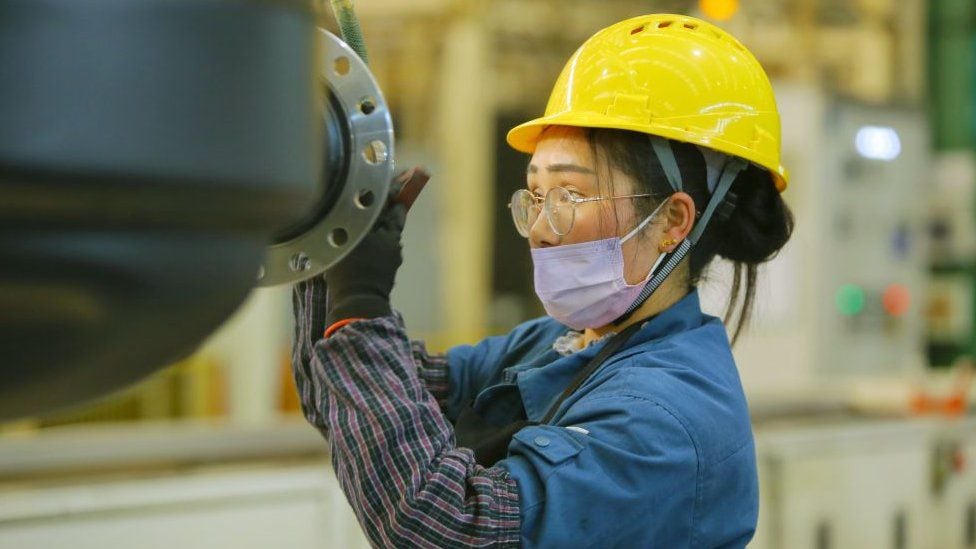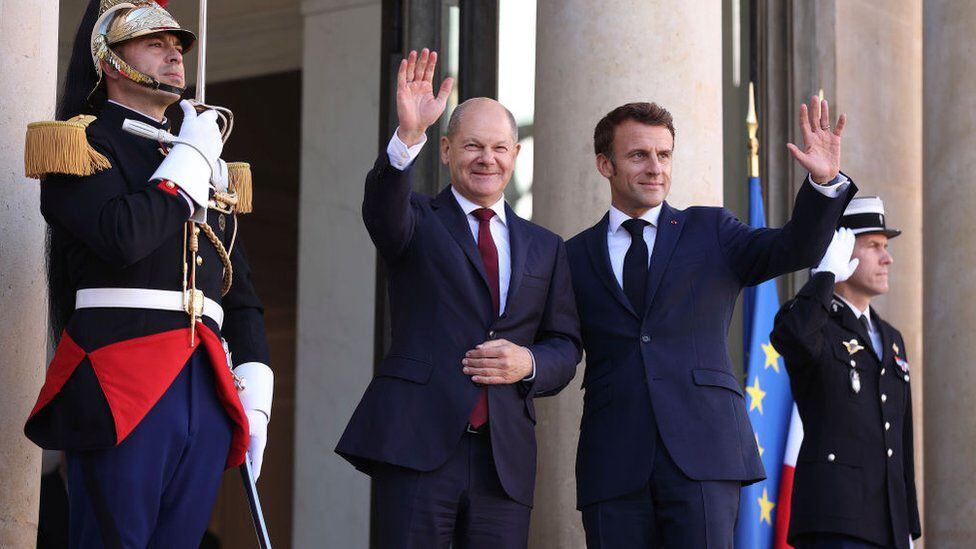The German Chancellor, Olaf Scholzmet this Friday with the Chinese president, Xi Jinpingmaking him the first G7 leader to visit Beijing since the COVID-19 pandemic.
LOOK: German Chancellor Olaf Scholz arrives in China for controversial visit
But his trip has sparked controversy in Germany and concern elsewhere in Europe.
The visit comes just days after the National Congress of the Communist Party of China, an event Xi used to tighten his grip on power by packing his leadership team with loyal allies.
An extraordinary and bitter dispute recently erupted at the top of the German government, when it emerged that a Chinese company was about to acquire a significant stake in a part of the port of Hamburg.
No fewer than six government ministers reacted furiously. They argued that such an operation would give China significant influence over German critical infrastructure. Germany’s security services also urged caution.
But the German chancellor appeared to insist the deal should go ahead and reportedly pushed for a deal, though he limited the size and influence of the 24.9% stake.
No one is sure why he seemed so determined. Scholz was mayor of Hamburg and remains close to the city authorities, who argued that the deal represented a vital investment.
But many other commentators they suspect there is an ulterior motive: that Olaf Scholz did not want to show up in Beijing without a “gift” for Xi Jinping.
That has caused surprise and concern.
Like the chancellor’s decision to bring along a delegation of German business executives, a common practice of his predecessor, Angela Merkel, who followed a policy of “change through trade”, believing that economic ties could influence relations policies with countries like China and Russia.
A new dependency?
“The signal that is being sent is that we want to extend and intensify our economic cooperation. That must be questioned,” says Felix Banazsak, a politician from the Green Party, a partner in Scholz’s coalition government.
The Greens have long sought a harder line with China. Just a few days ago, the party’s foreign minister, Annalena Baerbock, sternly and publicly reminded her that her government came to power with the promise of readjusting its strategy towards China.

Banazsak says his country must learn from its previous reliance on Russian energy: “We must make ourselves as independent as possible from individual statesparticularly if these are states that do not share our values.
But Olaf Scholz will be painfully aware of the complexity and depth of his country’s ties with China, which remains Germany’s largest trading partner, even though Germany imports more than it exports.
More than a million German jobs depend on this relationship. Take the example of car giant Daimler, which sells more than a third of its vehicles in China.
In the first half of this year, German companies invested in China more than ever. the chemical company BASF has just opened a new plant in southern China and expects to invest $9.9bn on the site by the end of this decade.
On the eve of the visit, the head of the German Association of the Automotive Industry highlighted Germany’s dependence on raw materials from China and warned that “decoupling” would be an economic and geostrategic mistake.
His counterpart at the Small and Medium Business Association also advised against a sudden change of course, saying “the advice can only be not to break any china now”.
Chancellor Scholz will spend less than 12 hours in Beijing and his goal, he said before his trip, is to find out how much cooperation is still possible, because “the world needs China” in the fight against the global pandemic and climate change.
“If China is changing, then our approach to China must change”said.
Many in Berlin and beyond will be looking for proof that Scholz’s response to a changing China may yet become his chancellor’s litmus test.
Scholz’s trip generates unrest in Europe
Analysis by Katya Adler, Europe Editor
Germany is the most powerful economy in the European Union and arguably the most influential member, so what it says and does matters.
I once suggested that former Chancellor Angela Merkel could sometimes be seen as a European Donald Trump because of the way she tended to put Germany first.
The EU’s broader concerns were ignored in favor of Germany’s lucrative energy and trade contracts with Russia and China. She demanded EU austerity measures for Mediterranean member states during the eurozone crisis to protect German taxpayers from incurring shared debt.

Olaf Scholz is Merkel’s successor in much more than just the role, in the minds of many EU leaders.
It is considered that his huge aid package for German companies in the face of high energy prices gives them an unfair competitive advantage in the single European market.
And his trip to China, announced but not coordinated with others in the EU, has caused unrest across Europe. French President Emmanuel Macron recently warned Scholz that he risked being isolated..
As Europe, and first and foremost Germany, frees itself from its dependence on Russian gas, the question is this: Is Berlin, blinded by the prospect of trade deals, getting too attached to China?
Macron has been pushing for years for the EU to scale back its engagement with Beijing, with critics accusing him of protectionism.
But after the failures in the global supply chain during the covid-19 pandemic, the weaponization of energy imports/exports after the Russian invasion of Ukraine and the presidency of Donald Trump, it became clear that Europe was no longer it should depend so much on the US in terms of security.
With Macron’s insistence that the continent become more cohesive and self-sufficient, diversifying its trading partners has begun to seem sensible for Brussels. Olaf Scholz is seen as worryingly out of step.
Source: Elcomercio
I, Ronald Payne, am a journalist and author who dedicated his life to telling the stories that need to be said. I have over 7 years of experience as a reporter and editor, covering everything from politics to business to crime.

:quality(75)/cloudfront-us-east-1.images.arcpublishing.com/elcomercio/GE3TCMBNGEYS2MBUKQYDAORRG4.jpg)





